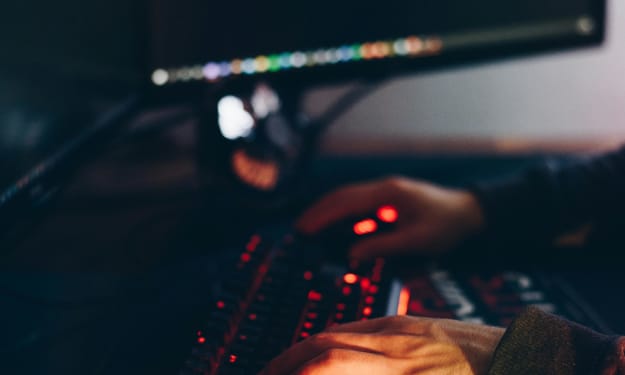
It was a Tuesday when I first noticed them. That morning had been terrible; for the first time in nearly a decade I was running late.
The night before I had been checking the headlines whilst walking to my car from the station, trying to ignore the small scratch at the top left of the screen, when a figure grabbed my phone from my hand. This happens every now and again; the sudden movement causes the device to lock and begin tracking itself, and unless it is unlocked within two minutes it automatically files a police report. These days a replacement arrives in under an hour. Since phone ownership reached a hundred per cent of the adult population it’s now a standard insurance clause.
The problem in this situation was how gracefully the thief had slipped the phone from my grip whilst pushing me into the gutter. It was still unlocked; I could see the glow of the screen as I looked up from the ground. It was held perfectly level, the pace and rhythm of the thief matching my own so as to avoid detection, yet for some reason I could not fathom my wrist ached for some time afterwards. They must have followed me for a while to perfect their graceful steal; this was a new kind of crime.
In a panic I looked around for witnesses but there was no one in sight. The entire street appeared deserted apart from the figure that stole my phone, walking alongside the parked cars. The thief must have been looking for a vehicle. My car unlocked upon their approach, the same as my apartment building would. A chilling thought dawned upon me that as long as they kept the phone unlocked and charged, they could take over my life. Even more daunting was my sudden realisation that there was no one nearby who could report it for me.
I knocked on a few doors but to no avail, I was met by silence. Nobody wants to open their home to a stranger at night, especially one who cannot be identified as they are not carrying a phone. It seemed reporting the crime would have to wait and I was forced to travel by foot as I couldn’t even hail a taxi, let alone pay for anything. Like everyone else my wallet was virtual since cash left circulation last year.
It took the best part of an hour for me to walk home. I was shaken, my wrist still hurting, and all the while I was thinking about the attacker. I tried asking people I later passed to report it but as they were not at the scene they were reluctant to be geotagged as potential witnesses. Instead, they apologised and returned to their phones, watching the latest political developments in three-dimensional high definition.
When I reached my building I had to wait for someone to arrive or leave, which took another twenty minutes. My patience was fraught, and when a neighbour did open the door they initially failed to recognise me as when they checked my profile, the picture was slightly out-of-date. Inside I had to use my thumb to open my apartment; dusting off the sensor I hadn’t operated since its installation some years prior.
I found my home ransacked and most of my possessions gone, including my tablet. Without a device I could not report the crime at all, so instead I tidied and settled in for the night, resolute to deal with it in the morning.
That brings me to the Tuesday, and why I was late. You see, my alarm, along with the rest of my life, was on my phone. Without any electronics I was unable to awaken on time, and as such found myself in the most horrendous rush. I dashed back to the station, aware that the walk would cause me further lateness, and in my haste completely forgot to report the theft and subsequent break-in to the police as I passed the scene of the crime. Instead, I found myself unable to access the train, as my ticket is, like my wallet, digital.
Eventually I managed to decipher the ticket machine and purchased a single fare using my thumb, after a lengthy interval of attempting to remember my account details. Finally on the train, and unable to call to inform the office of my lateness, I sat and, without a screen to look at, watched the other commuters.
Everybody was observing their phones, either receiving the morning headlines or monitoring social media. Something was off, though. I inspected their eyes, and it was as if scales had fallen from mine. The colour that usually permeates the iris had depleted, leaving everyone with grey surrounding their pupils. Unsettled, I turned my head to regard my own in the reflection of the window. They were mostly grey, but a hint of hazel was there, as if they were waking from slumber.
As the journey progressed, my vision adjusted further. I noticed all around me were not only monochrome of eye, but also of skin. They were all drained to a sickly pallor; whatever the original pigment, their faces were now varying tints of grey. Nervous, I moved to another carriage, but was faced with the same horrifying sight. Perhaps this was what we had become; faded as our lives now played out on screens?
I brushed that thought from my mind and instead focused on the details of what I was seeing. Logical conclusions must be drawn from facts, not conjecture. The people were wearing a glazed expression whenever they looked up, which was rare. Since your phone could guide your footsteps with overlaid directions and a background video of your path ahead, there is no need to raise your eyes. Traffic is monitored for street crossings and notifications of emergencies appear before you. It’s a perfect system.
It was the tentacles that were most off-putting; small tendrils that seeped from the lower edge of the devices and touched the palms and wrists of the users. Had my phone done that to me? Was I, also, connected to my device through more than I was aware? A shudder crept across my shoulders and I vowed to not replace my phone until I had investigated this further.
At this point, several of them looked up. The glaze over their eyes gone, they stared at me with grey determination. Had they heard me? I had not spoken, merely thought. Surely these phones could not pick up my brainwaves, no matter how advanced they have become? I turned my eyes away and retreated, intending to move back to the previous carriage, but found my path blocked by more steely-eyed sentries.
Before I could ask their intentions I felt hands on my shoulders and arms, holding me in place. Nausea scuttled across my body, yet my attempts to escape were futile. A firm hand gripped my wrist and lifted my open palm before my eyes, into which was placed a phone. It was identical to the one which was stolen from me, albeit without the small scratch in the top left of the screen. It flashed three times white and then faded to the latest news.
I forced my eyes to look away from the screen, focusing instead upon my wrist, and to my horror saw the tendrils slip from the base of the phone and touch my skin. They wriggled and pulsated, the tips burrowing beneath my flesh. For an instant all I felt was fear, and then the moment passed.
I remember all this with great intensity, and yet without emotion. Since that day I have continued as before; commuting to and from work, being driven between my home and the station. I don’t know how my car returned, or if it even left. Part of me thinks I am mad, that my psyche is somehow deranged. And yet, for all my trying, I still cannot look at my wrist when my phone is in my hand. Perhaps it won’t let me.
About the Creator
Seb Reilly
Writer, fiction author and occasional musician.






Comments
There are no comments for this story
Be the first to respond and start the conversation.